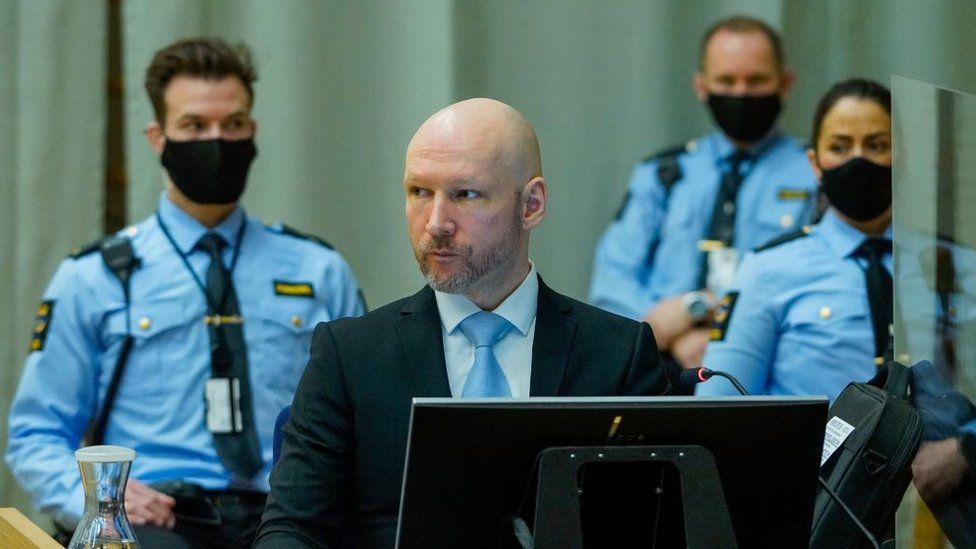Norway mass killer Anders Breivik ordered to stay in jail
- Published

Breivik was given three days to argue his case for parole
A Norwegian court has rejected a bid for release by neo-Nazi mass murderer Anders Breivik, ruling that he has not changed and remains a risk to society.
Breivik killed eight people with a car bomb in Oslo in July 2011, before shooting dead 69 people at a summer youth camp.
He was jailed for a maximum 21 years but applied for parole last month.
Although he said he had renounced violence, he gave Nazi salutes on the opening day of the hearing.
In its ruling, the court in Telemark in south-east Norway said that it did not trust Breivik's claim that even though his ideology had not changed he would now only promote it through peaceful means.
Prosecutor Hulda Karlsdottir had argued that the mass killer was still "a very dangerous man". A similar assessment was provided by psychiatrist Randi Rosenqvist, who has assessed Breivik several times and was adamant he could not be trusted.
The three judges found that, as his psychiatric condition had not changed, there was a clear risk he would repeat the behaviour that prompted the murders carried out on 22 July 2011.
The court said it had "no doubt that [Breivik] still today has the ability to commit new serious crimes that may expose others to danger".
His lawyer Oeystein Storrvik argued that Breivik's prison conditions made it difficult to prove he could be trustworthy. He said he would appeal against the judge's unanimous decision, although there is no guarantee that an appeal will be allowed.
Anders Behring Breivik, 42, has never shown any remorse for the 77 murders carried out first near government offices in Oslo and then on the island of Utoeya, where he shot dead mainly teenagers taking part in a summer youth camp run by the Labour Party.
The parole hearing, which came 10 years after Breivik was jailed, enabled him to repeat far-right conspiracy theories and display Nazi salutes. He told the court that he had renounced violence and terror, arguing it was possible to be a Nazi without being violent.
Lisa Husby recalls hiding in fear as far-right extremist Anders Breivik went on a killing spree on Utøya island on 22 July 2011
Related Topics
- Published15 March 2016
- Published1 March 2017
- Published16 March 2016